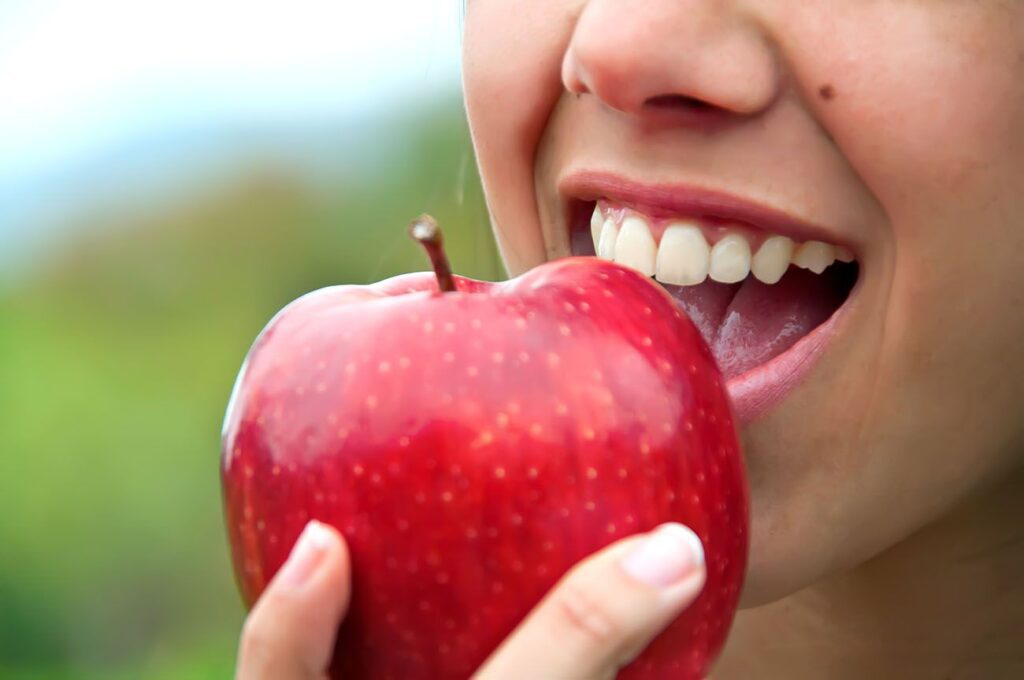Your diet can play an important role in your oral health, especially your gums. Keeping your diet balanced and rich in nutrients ensures that your entire body can stay healthy enough to keep your smile looking and feeling its best.
But certain foods can also lower your risk of gum disease and ensure your gums appear and function as well as possible. Gum disease, an infection of the gum tissue, requires therapy from your dentist to treat.
So ideally, you should take preventative measures, including eating conscientiously, when it comes to your periodontal health. Discover four examples of foods that contribute to healthy gums by reading on.


Apples
You may have heard the saying an apple a day keeps the doctor away. But eating apples can make your dentist happy as well. Apples make a great snack alternative when you crave something sweet but want to avoid harmful sugary treats.
But apples can improve gum health in particular because biting into the fibrous exterior of this fruit can give your oral hygiene a boost. The crunchy apple will scrape away plaque build-up in between your teeth-brushing regimens. Then you can reduce oral bacterial spread that could otherwise heighten your risk of gum disease.
Yogurt
Your dentist will encourage you to consume dairy products because the calcium they contain can make your teeth stronger. But yogurt brings these oral health advantages and more for your gums as well. Yogurt has probiotics that work to balance the number of bacteria throughout your body.
Excess oral bacteria, for instance, could put you in greater danger of infections like gum disease. Talk to your dentist to learn more about the preventative benefits of yogurt.
Salmon
Salmon and other oily fish make for great sources of omega-3s. This is a type of essential fat that studies suggest has anti-inflammatory properties. Gingivitis, the initial stage of gum disease, often presents with inflammation in the gums.
If your gums are swollen, bleeding, or sore, anti-inflammatory agents, like those found in salmon, can reduce the uncomfortable symptoms. You will still need treatment from your dentist to get rid of gum disease for good. But you can find relief from periodontal discomforts with salmon in your diet.
Water
Some people may argue that water is not a food, but its benefits for your gum health remain evident. If you do not drink enough water, you can become dehydrated. When this happens, you will produce less saliva, which can leave you with uncomfortable dry mouth.
The dry oral environment allows bacteria to travel across your teeth and reach your gums more easily. So avoid risk factors of gum disease like dry mouth by drinking plenty of water.
Drinking water will also give your oral hygiene a boost because it can rinse away harmful particles and residues after a meal. Learn more about how hydration can help your gums by giving your dentist a call today.
